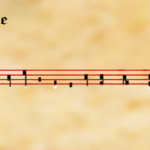
During the Great Big Illegal Immigration Brouhaha of 2006—a drama of conservative hyperventilation and La Raza flag-waving parades that has since been repeated each May preceding a mid-term election—about two thousand of my blog readers left, never to return.
They left because I had argued for the reform of a bogged-down and inefficient National Immigration Service, and the creation of a reasonable path to citizenship for peaceful people who had often been living in America for years—sometimes decades—working, and building lives and families and sometimes our homes and churches, too.
Readers too reasonable to simply lob a “shamnesty” brick through my window and run away did challenge me on the issue of fairness. Grandfathering-in schemes, they suggested, insulted those immigrants who had come into the country “the right way,” jumping through all the (admittedly arduous) legal hoops.
Given yesterday’s headlines proclaiming the Vatican’s intention to explore pastoral means by which divorced and remarried Catholics should be ministered to–and whether that includes the reception of the Holy Eucharist–we can expect to hear similar questions of fairness arise. Without a doubt, some will call any simplification of the annulment process a kind of “Catholic amnesty”, rendering annulments too easy to obtain, too lenient, too easily misunderstood as a watering down of our teachings on marriage and divorce.
These concerns are valid to a point; compassionate instincts aside, no serious Catholic should want (or expect) to see an erosion of our teachings, particularly as regards a sacrament instituted by Christ and definitively pronounced in scripture. At the same time, however, our brothers and sisters–standing in need of healing, community and the unique spiritual nourishment that may only be found within the Holy Eucharist–remain outside our doors, either confused about what it takes to come through them, or convinced that they will be hounded out as unwelcome.
The confusion and uncertainly arises partly from poor instruction; despite forty years of Pre-Cana classes, many priests and pastoral assistants (and even bloggers) know Catholics who think their divorce has automatically excommunicated them—that even without remarriage they are unwelcome in the communion line or the pew.
The purpose and value of annulment is also misunderstood. Meant to determine whether issues of honesty, maturity, or character defect could have intruded upon the sacramental rite, thus rendering it void, an annulment can also be a grace-filled vehicle for self-examination and healing; some credit the process with helping them identify unhealthy relationship patterns before they are repeated.
I have never met anyone who has regretted seeking an annulment, but many divorced-and-remarried Catholics nevertheless believe they are difficult to obtain, costly, time-consuming, and personally intrusive. For some, the idea of having to re-engage with their former spouse is so painfully repellent that it seems a cruelty inconsistent with the mercies of Christ, unendurable, even for the consolation of Communion.
That last indicates a deficient understanding of the Eucharist. Coupled, perhaps, with an underwhelming experience of the mass and a poorly formed sense of Christ’s presence amid our sufferings, it all adds up to a failure of instruction and catechesis for which the Institutional Church must accept a deal of blame. If the sheep are unable to recognize the reality of the Good Shepherd made Present before them, it is up to those charged with their care and feeding to rescue them from their wanderings and correct their course, but with gentleness, acknowledging how their own negligence contributed to the scattering.
Our teachings are founded upon the words of Christ Jesus and they’re hewn through two thousand years of nuanced, lively, and inspired reasoning that has always managed to balance justice with mercy. And yet, when Catholic marriages began to fall to the sexual revolution, the Church—like the sloth-slow, unresponsive NIS—seemed to seize up; it did little to explore more fluently pastoral ways to communicate its wisdom, and even less to tell divorced Catholics that they still mattered, and still belonged.
The Church must always, first and foremost, reflect the teaching of Christ, but as a cleric who assists on a diocesan tribunal wrote to me recently, “virtually all the cases I’ve encountered come down to one problem: one or both of the parties was young and stupid and didn’t fully appreciate what they were getting into when they stumbled into their previous marriage.”
Concerns that immaturity (and its effect on one’s capacity to consent) may become a convenient catch-all, by which any marriage may be set aside, are not unreasonable. Surely, of the 28% of Catholic marriages ending in civil divorce, a fair number are sacramentally licit and lacking real grounds for annulment, full stop.
It is nevertheless a fact that mature reason appears to be at a premium in the West, where consumerism, media enticement and crumbling family structures have failed to model healthy relationships thus contributing to a confused understanding of what love, sacrifice and commitment entail. Faced with a flock deeply wounded before attaining their maturity–before fully getting their legs under them, so to speak–our shepherds should be practical about whether the injuries of reckless youth and insufficient catechesis must leave so many forever crippled, or whether healing might yet be possible.
An attempt to streamline the annulment process is not an idea that will please everyone. Those who—like our newly-pledged immigrant citizens—have jumped through the hoops and endured the long and difficult bureaucratic processes may justifiably wonder about fairness. They may feel like the elder brother in the parable of the prodigal son, and they will need to be reminded–with great love–that “everything we have is yours” but that their brothers and sisters are on the horizon, seeking to come home.
The Eucharist, although it is the fullness of sacramental life, is not a prize for the perfect but a powerful medicine and nourishment for the weak. These convictions have pastoral consequences that we are called to consider with prudence and boldness. — Pope Francis, Evangelii Gaudium, 47
When I think of the Catholic Church, I think of the crucifix, and of the Body of Christ as the centering balance between the horizontal bar of justice on the right, and mercy on the left. There is mercy for the sinner; mercy for the truly penitent. Whether the sin is abortion or theft or fornication or even idolatry, a sincere confession and absolution restores the sinner to the healing sacrament of Holy Communion.
Jesus said “What God has joined together, no human being must separate,” (Mark 10:9) and those words alone absolutely justify, nay demand, an examination of sacramentality before an annulment and remarriage—a simple confession will not meet the case.
Better heads than mine can thrash it out, but perhaps a shorter and less arduous annulment process–one combining adult catechetical classes, a solemn, specific penitential rite (where needed) and a blessing to close the issue—could finally align justice to mercy on behalf of the brothers and sisters who, season after season, we are missing.
UPDATE:
Deacon Greg Kandra, who works on his Diocesan annulment tribunal has a few thoughts, as well.
And a giddily alliterative Msgr. Charles Pope lists the Four Factors that Fuel the Crisis in Marriage and Family.











